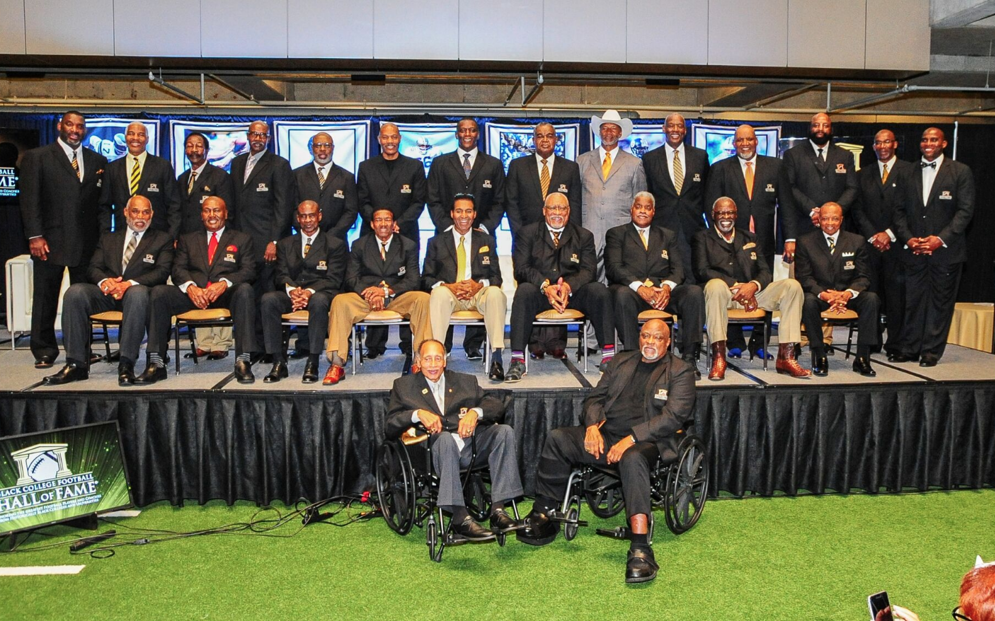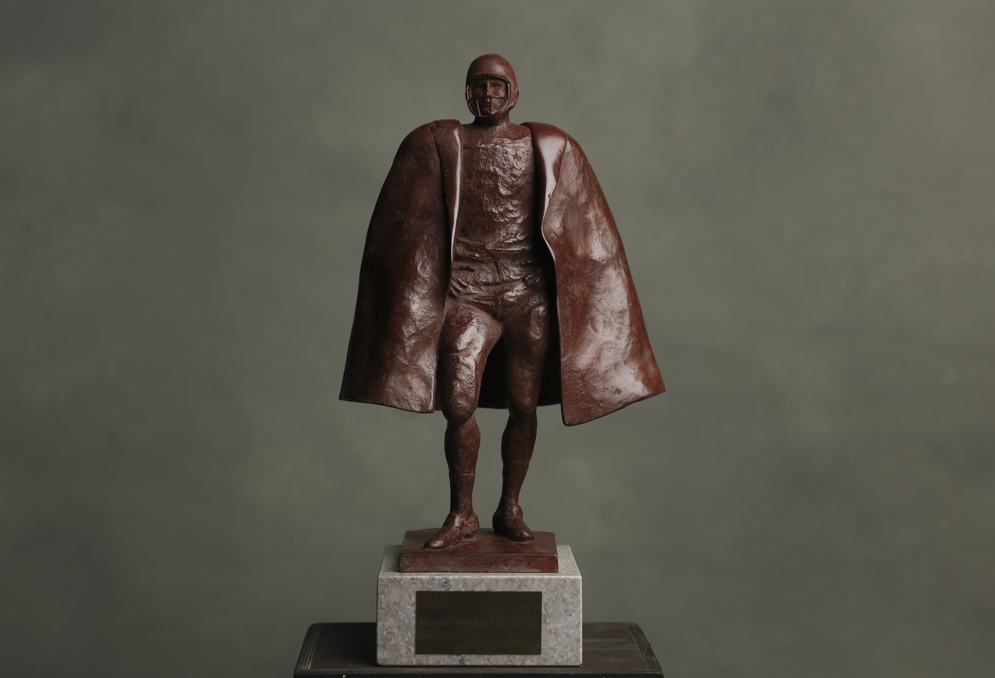Honoring HBCU History
The NFL celebrates its rich history with HBCUs.
The NFL celebrates its rich history with HBCUs.
The elite brotherhood of HBCU players has had a tremendous impact on football and in the communities in which they have played, exemplifying excellence on and off the field.
Whether it’s celebrating personal or team successes or positively impacting communities across the country, the influence of players from HBCUs is woven into the fabric of the NFL.
The all-time leader in career receptions, receiving yards and most career touchdowns (Jerry Rice, Mississippi Valley State). The player with the most sacks in a single season (Michael Strahan, Texas Southern). The only man to ever win both a Super Bowl ring and an Olympic gold medal (Bob Hayes, Florida A&M). And the namesake for the NFL’s most prestigious honor (Walter Payton, Jackson State).
These are just a few of the accomplishments made by HBCU players in the NFL — all players that are enshrined forever in the Pro Football Hall of Fame.
Check out HBCU athletes, coaches, and notable figures who have graced the covers of Sports Illustrated.
HBCU players represent only a small portion of the total football population, yet nearly 10% of all players in the Pro Football Hall of Fame attended HBCUs (35 out of 371 members). Super Bowl rings, Pro Bowls and all-time records are attributed to these athletes; and their performance on and off the field set the standard for generations to come.

2018 Black College Football Hall of Fame induction ceremony.
In 2016, the Pro Football Hall of Fame and the Black College Football Hall of Fame (BCFHOF) partnered on a permanent home for the BCFHOF — the Hall of Fame Village in Canton, Ohio, which celebrates the legacy of HBCUs on the game. The partnership also includes a traveling exhibit and established an HBCU postgraduate internship.
The BCFHOF was founded in 2009 by Black pioneers and NFL quarterbacks James Harris and Doug Williams. The institution preserves the history and honors the greatest players, coaches and contributors from HBCUs. There have been 90 inductees since its creation.

The Walter Payton NFL Man of the Year trophy. (AP/Ben Liebenberg)
No honor represents the exemplary character of athletes more than the league’s most prestigious and coveted recognition — the Walter Payton NFL Man of the Year Award.
Named after the legendary Chicago Bears running back and Jackson State University alumnus, the annual award is given to the player who best represents the NFL’s commitment to philanthropy and community impact.
Learn more about the Walter Payton NFL Man of the Year Award.
Historically Black Colleges and Universities (HBCUs) are institutions of higher education in the United States that were established before 1964 with the principal mission of educating and serving Black Americans.
As of 2021, there are 101 HBCUs located in 19 states, the District of Columbia, and the U.S. Virgin Islands that enroll almost 300,000 students. Of the 300,000, approximately 80% are Black, and 70% are from low-income families.
See below for more facts about HBCUs and their extensive history: